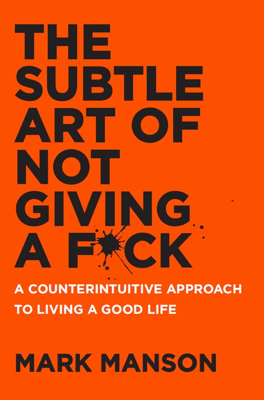You’re Wrong About Everything (But So Am I)
Embracing Incorrectness: The Path to Personal Growth
We are all perpetually wrong about virtually everything at various stages in our lives. From historical beliefs, like California being an island, to personal misconceptions about relationships and self-worth, erroneous thinking has long been part of the human condition. Mark Manson reminds us that accepting our wrongness is not a sign of weakness but a hallmark of personal growth.
Growing through wrongness involves recognizing every past belief as a stepping stone to lesser wrongness, not ultimate rightness. This ongoing iterative process helps refine our understanding of life and better aligns our actions with reality. By admitting and accepting our flawed perceptions, we pave the way for growth and new learning.
In a practical sense, this process is akin to scientific methods. We hypothesize through our values and test these through our actions, learning from the emotional and intellectual feedback we gain from our experiences. There are no absolute truths, just individual experiences shaping personal truths that are continually updated through life's interactions.
Challenge your certainties to foster personal growth. Embrace doubt in your existing beliefs to unlock new areas of personal development. By questioning what you hold as true, you open yourself up to discovering errors in your assumptions, leading to new insights and progress.
Stories and Social Illustrations
Mark uses compelling narratives to illustrate our struggles with certainty. From personal relationships reflecting misguided life theories to global historical errors that show our collective fallibility, these illustrations bring to life the consequences of our errors and the growth opportunities they present.
Erin's story, where a misguided belief in curing death led to obsessive behaviors, underlines the dangers of unchecked certainty. It vividly shows how a misplaced sense of destiny can derail personal happiness and social interaction.
Meredith Maran’s experience with false memories highlights the destructive potential of firmly held but incorrect beliefs and how they can devastate relationships and personal integrity.
These examples serve to remind us that what we hold as certain can often be our biggest obstacle to happiness and understanding. They reinforce the chapter's theme of the value of questioning our deepest convictions.
Concluding Reflections
The chapter closes with a powerful message: embrace uncertainty. In acknowledging what we don’t know, we find the humility needed to learn and grow. This acceptance does not weaken our identity but rather opens us up to a broader range of experiences and a deeper understanding of ourselves and the world.
By constantly refining what we believe about ourselves, others, and the world, we stay engaged in a lifelong journey of learning and adaptation. This continuous challenge to our perceptions does not just change how we think; it fundamentally alters our interactions with the world in more informed and compassionate ways.
